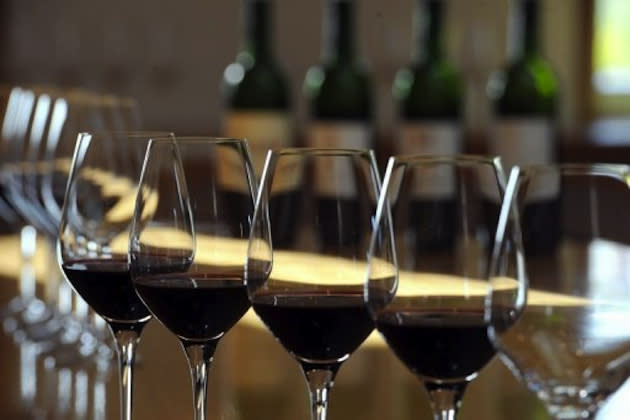 The Sideshow
The SideshowBinge-drinking students happier and more accepted than others: study

Researchers completing a new study on alcohol consumption have discovered that college-age students who binge drink are happier than those who don't.
Those who engaged in binge drinking tend to belong to so-called high-status groups: wealthy, white, male and active in fraternity life. And those who did not belong to the high-status groups could achieve similar levels of social acceptance through the act of binge drinking. In fact, the study results suggest that students engaged in the heavy drinking practice to elevate their social status amongst peers rather than to alleviate depression or anxiety.
"The present study offers another insight into the nature of a seemingly intractable social problem," the study released on Monday reads. "It is our hope that by drawing attention to the important social motivations underlying binge drinking, institutional administrators and public health professionals will be able to design and implement programs for students that take into account the full range of reasons that students binge drink."
The Washington Post reports that the study's co-author and Colgate University associate professor Carolyn Hsu presented some of the findings during the American Sociological Association gathering in Denver last week.
Interestingly, the study results compiled from surveying 1,600 college students also continues to support past evidence suggesting that binge drinking leads to a number of problems affecting the mind and body, including alcoholism, violence, poor grades and risky sexual behavior.
"I would guess it has to do with feeling like you belong and whether or not you're doing what a 'real' college student does," Hsu told LiveScience. "It seems to be more about certain groups getting to define what that looks like."
Binge drinking was defined as consuming more than four drinks in one occasion for women and more than five drinks for men. Sixty-four percent of respondents said they had engaged in the practice, compared with 36 percent who said they had not.
Those statistics differ from similar evidence gathered by the Centers for Disease Control and Prevention (CDC). The CDC's statistics measure binge drinking in the same quantity but limit the consumption period to two hours or fewer. Its results also found that the majority of binge drinkers (70 percent) were over the age of 26. The CDC has also found that 90 percent of alcohol consumed by people under the age of 21 is done in the form of binge drinking, compared with 75 percent among all U.S. adults.

